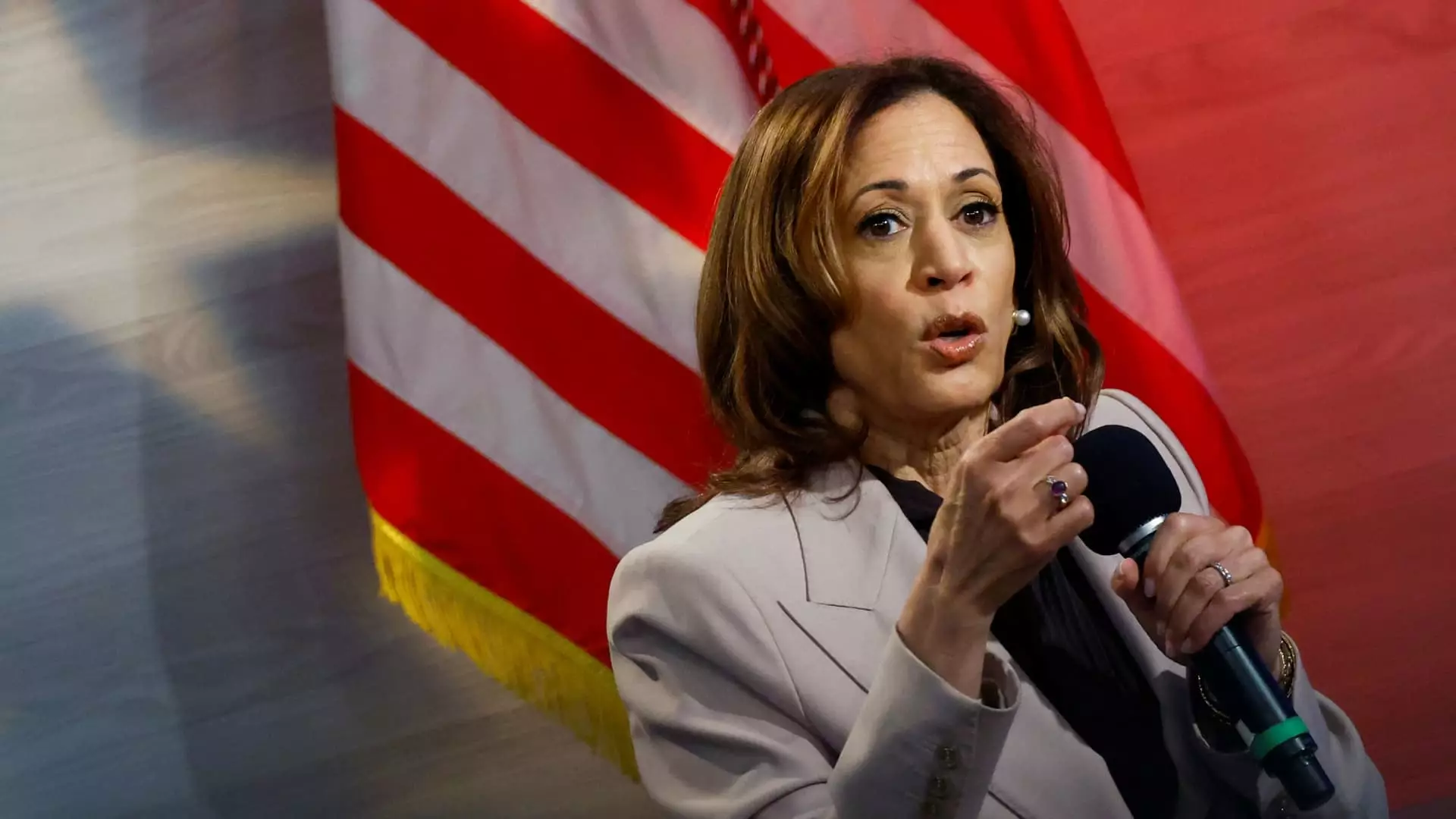Amid the charged atmosphere of modern U.S. politics, the role of young Black men as a pivotal voting bloc has never been more pronounced. Vice President Kamala Harris’ recent address highlights an urgent need to connect with this demographic, especially as former President Donald Trump has made significant inroads among younger Black voters. Understanding their concerns and aspirations is essential for any candidate aiming to secure their support; this demographic can no longer be taken for granted.
This emerging fracture within the traditional Democratic base signals a troubling trend: Harris’ acknowledgment that young Black men are not automatically on her side reflects a broader reality that transcends mere party allegiance. The recent NAACP poll indicates an unsettling shift in political leanings, with over 25% of Black men under 50 expressing support for Trump—a statistic that is alarming for the Democratic Party.
To regain trust and reconnect with these young Black men, Harris is placing her economic proposals at the forefront of her campaign. This strategic pivot is not merely a tactical maneuver but is essential for addressing the underlying issues of access and equity that affect Black entrepreneurs. In her discussions, Harris emphasized that many aspiring entrepreneurs in Black communities are starved of the capital needed to transform their ideas into thriving businesses.
Harris proposed introducing substantial measures aimed specifically at fostering small business prosperity through initiatives like a $50,000 small business tax deduction and the removal of medical debt from credit scores. These measures appeal to the need for tangible economic support, addressing systemic inequities that have historically marginalized Black entrepreneurs. Harris signals a shift from promises to actionable plans that speak directly to the challenges faced by her target audience.
This focus on economic opportunity is a powerful statement. It acknowledges the aspirations of young Black men rather than framing them simply as victims of a system. When candidates engage with constituents’ dreams and ambitions, they rise above the narrative of dependency, instead advocating for collaboration in achieving shared economic success.
However, Harris’ task is not simple. Black men in America carry the baggage of historical disenfranchisement, and their skepticism toward political figures runs deep. By stating that she is not taking their votes for granted, Harris is making a concerted effort to dismantle the preconceived notions that often inhibit engagement.
The economic landscape has drastically shifted since the pandemic disrupted everyday life. With soaring living costs and mounting inflation, Harris must counteract nostalgia for the pre-Covid economy that many Black voters associate with Trump. This means portraying not only the successes but also the realities of the Biden administration’s recovery efforts. Harris needs to frame economic relief not just as a political talking point but as a lifeline for those still grappling with the pandemic’s effects.
Harris’ proposals, while robust, must be communicated effectively. If her campaign can showcase the real-life impacts of her initiatives—illustrating how they facilitate the success of young Black entrepreneurs—then Harris can position herself as a viable advocate for progress rather than merely a political contender.
Looking ahead, Harris faces the formidable challenge of rekindling trust among young Black voters. Her attempt to foster connections through economic empowerment could yield dividends if executed with sincerity and commitment. This means building on her ideas and transforming them into community-driven initiatives that not only address economic disparities but also uplift Black voices within the dialogue.
Combating Trump’s narrative will also require aggressive outreach, perhaps implementing grassroots initiatives to engage directly with the communities most affected by these economic policies. By illustrating a genuine investment in the economic future of young Black men—and ensuring that their voices shape policy—Harris may succeed in not only reevaluating her place within the community but also motivating a generation to engage politically.
Harris stands at a crucial juncture. With an economic-focused approach, her vision can diverge from historical politics toward a future defined by equitable opportunities, urging young Black men to consider the implications of their vote not merely as participation in a democratic process, but as a stepping stone to communal advancement. The success of this endeavor hinges on authenticity, empathy, and a commitment to shared prosperity.


Leave a Reply